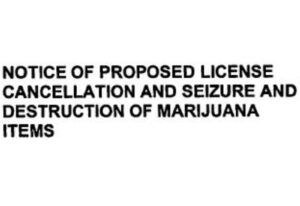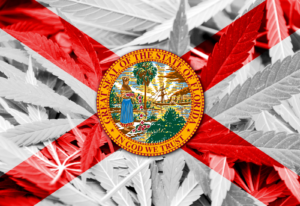Some readers may be surprised to realize that a lot of cannabis stakeholders actually don’t want broadsweeping federal legalization. Why? Because they know it means that they’ll instantly be competing with well-established companies that are already masters of economies of scale, branding, marketing, and consumer sales, and their market share will shrink or be eliminated completely. At the same time, even those protectionist stakeholders are still hurting for certain aspects of federal legalization to go through, the top two being I.R.C. 280E and banking reform.
Banking reform is much more likely to happen before Congress decides to mess with 280E (despite the fact that certain law firms continue to try to pull off Hail Marys in tax court litigation to eliminate or reduce the draconian effect of 280E). Access to banking and reducing or eliminating federal penalties for financial institutions dealing with cannabis businesses has been on the horizon for sometime now in Congress. Political back channeling, inside baseball, and overarching legalization policy concerns have ultimately kept such reform from passing. Still, we have the 2014 FinCEN guidance to help the industry along where state-licensed, law abiding cannabis businesses can try to secure bank accounts with financial institutions that follow that guidance. That guidance though remains a band-aid for a much bigger issue, which is that all cannabis investment dollars, financial proceeds, etc. remain federally illegal despite state law otherwise allowing licensed commercial cannabis activity.
Point and case, this cautionary tale out of Kansas City, Missouri in which the Feds reared their ugly heads to forfeit a sizeable amount of cash derived from state-legal cannabis sales. We’ve written before about the looming danger of asset forfeiture because of state legal cannabis (the ancient Harborside case comes to mind, too). Ten years ago when I first started in this practice, it was landlords and their real property that were the main targets of civil and administrative federal asset forfeiture when it came to leasing to medical cannabis businesses (see here, too). And over time it seemed like the Feds weren’t going to put a target on interstate or intrastate money trafficking regarding dollars used in or derived from commercial cannabis activity. But they certainly always could have and they definitely still can, given that the federal Controlled Substances Act makes no exception for state-licensed cannabis businesses.
Missouri is relatively new to the state-legal cannabis game, but talk to anyone in the industry on the west coast and what happened to Empyreal Logistics isn’t really anything new in the industry. The reason why this instance of surveillance and forfeiture is jarring is because it’s in the wake of the rescinded Cole Memo and during a time where, seemingly, the Feds haven’t cared about state-legal cannabis since 2013 or so, and where the democrats (who are now in control of Congress and the White House) time and again have generally taken the position that they’re in favor of medicalization/legalization.
People shouldn’t be shocked that the Feds took their time to engage in their old tricks when it comes to forfeiture. For me, the takeaways from Kansas City are:
- Financial institutions in Missouri need to step up and take advantage of the 2014 FinCEN guidance so that licensees there can bank directly rather than having to cross state lines to do that. Things like cash transport vans over state lines aren’t exactly the best way to avoid the attention of the Feds (even if the cash transporter is top notch, and I’ve dealt with many over the years that are).
- The Feds are still paying attention and will continue to do so unless and until there’s federal reform. Just because you have a state license doesn’t mean a thing when it comes to the federal government, and each U.S. Attorney has prosecutorial discretion to pursue these cases (TIP: get to know the U.S. Attorney’s record in your district when it comes to forfeiture cases and cannabis prosecutions).
- Understand the ins and outs of forfeiture given federal illegality. Any piece of property (personal or real, meaning homes, cash, boats, cars, commercial real estate, etc.) is subject to forfeiture if it’s used in or derived from commercial cannabis activity. That’s true whether the activity is licensed or not, and no matter how far the property gets away from the crime (i.e., cannabis investors can have all of their cannabis dollars taken even if they’ve never trafficked in cannabis at any time). Bottom line is that the property itself is the defendant and the owner of that property is just a third party claimant. Plus, forfeiture can be civil or administrative (as well as criminal). In civil and/or administrative proceedings, no criminal charges need to be brought for the case to proceed.
- Have a contingency plan in your commercial cannabis agreements for forfeiture. We have pretty much always exercised this practice, from leases to other commercial transactions where the parties must deal with the commercial fall out from forfeiture. If your current agreements are missing such contingencies, you’re behind the power curve.
None of this lives in a gray area. A state cannabis license won’t stop the Feds from enforcing federal cannabis laws at any given time, and there’s no cover from the Cole Memo anymore to tell the public what the Feds prioritize when it comes to enforcement. Cannabis, as a result, remains risky business in the U.S., and licensees must (still) be prepared to deal with the reality of the federal conflict at all times.
























